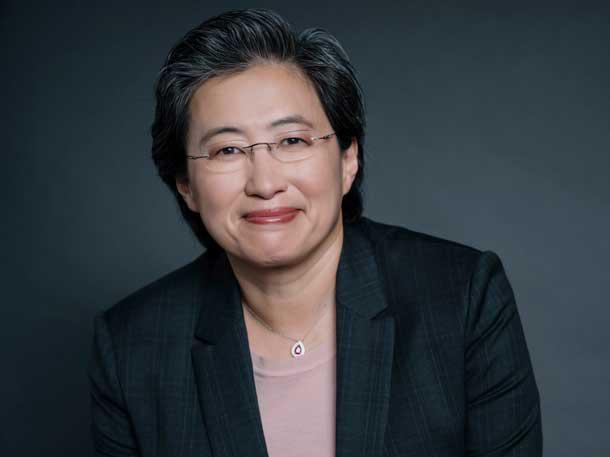AMD CEO Lisa Su Joins Cisco's Board As EPYC Sales Ramp
'If Cisco brings out more product with AMD's processors, they might find that more corporate customers are willing to adopt it,' one AMD partner says of Lisa Su's appointment to Cisco's board and what it might mean for the chipmaker in the data center space.

Cisco Systems has appointed AMD CEO Lisa Su to the networking giant's board of directors — a move the chipmaker's partners say is good news for Intel's rival in the data center space.
The San Jose, Calif.-based company announced the appointment Monday, with Cisco CEO and Chairman Chuck Robbins calling Su an accomplished business leader with deep expertise in the semiconductor industry," which he expects to have an impact on the networking company's business.
[Related: Intel: Xeon Supply Is Not Constrained, Delays Can Happen]
"We look forward to her contributions to Cisco’s board and our business as we continue to develop ground breaking technologies, and a new internet for the 5G era that will help our customers innovate faster than ever before," Robbins said in a statement.
Dominic Daninger, vice president of engineering at Nor-Tech, a Burnsville, Minn.-based AMD and Intel partner in the high-performance computing space, said the move is good news for AMD as the chipmaker seeks to steal market share from Intel in the data center space with its EPYC processors.
"It's certainly a vote of confidence in AMD," he said.
While AMD's new EPYC Rome processors have started to catch on with enterprises since they launched last August, the company still faces inertia from private sector companies that have been content with Intel's Xeon processors, according to Daninger.
"You hear all kinds of things like maybe the floating-point math isn't quite like Intel's and all kinds of fear, uncertainty and doubt," he said.
But with Intel's ongoing CPU shortage and other challenges, Cisco's board appointment signals a new opening for AMD with enterprise customers, according to Marc Fertik, vice president of technology solutions at Ace Computers, an Elk Grove Village, Ill.-based AMD and Intel partner.
This could mean a deeper collaboration that could lead to more Cisco products using AMD processors, Fertik said, and that, in turn, could lead to more easier acceptance from risk-averse companies. Cisco's current portfolio of AMD EPYC-based systems includes the USC C4200 series rack server chassis and USC C125 M5 rack server nodes.
"If Cisco brings out more product with AMD's processors, they might find that more corporate customers are willing to adopt it," he said.
In AMD's earnings for the third quarter of 2019, Su said sales of the company's second-generation EPYC processesors with enterprise customers was stronger than expected.
"The key metric is more top-tier brands adopting EPYC and talking about that publicly," she said last October, referring to new customers like Twitter and Google.
Cisco has also signaled its own ambitions in the semiconductor space with Cisco Silicon One, a new networking silicon architecture that was revealed in December and is expected to bring about programmable ASICs for high-performance networking.